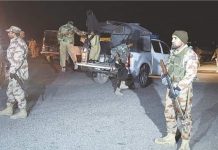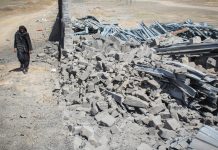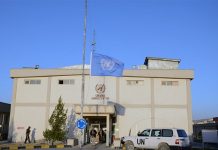The International Committee of Red Cross said in a recent media statement that Afghanistan is now among the deadliest places in the world for civilians to be in. In addition to the increasing violence in the past few weeks by the Taliban troops overrunning much of the country, Covid-19 has seen an alarming resurgence in the country, but that is currently the least of the Afghan civilians’ worries.
The Red Cross, a Geneva-based international humanitarian organization with over 97 million volunteers around the world, said that its workers in Afghanistan have helped 46,000 war-wounded patients since the start of this year. Half of the civilian casualties are women and children. That is an average of 270 people needing treatment per day, a significant challenge in a country that is gradually tumbling towards a deadly civil war.
The Red Cross said that its physical rehabilitation and limb-fitting services received 7,130 patients during the first half of 2021, and 700 of these had a limb amputated. The Cross said that its teams have so far helped 80,000 people in the country. And with the violence on the rise, the numbers are likely to shoot up.
“The ICRC is appealing to all parties to the conflict to do more to protect civilians from harm. The intensification of conflict-related violence, growing insecurity, destruction of water or electricity infrastructures, lack of access, attacks on health facilities and health workers, are among the main issues affecting the lives of Afghans,” said Eloi Fillion, the ICRC’s head of delegation in Afghanistan.
“More than four decades of armed conflict in Afghanistan have all but decimated its health care system. With COVID-19 adding yet another deadly threat, access to health care is among the most pressing humanitarian needs everywhere in the country, regardless of the political affiliation,” said Mr. Fillion.
The Red Cross said that it continues to reach out to the parties involved in the conflict to respect the International Humanitarian Law and do not harm the crucial infrastructure, like hospitals and vehicles.






























